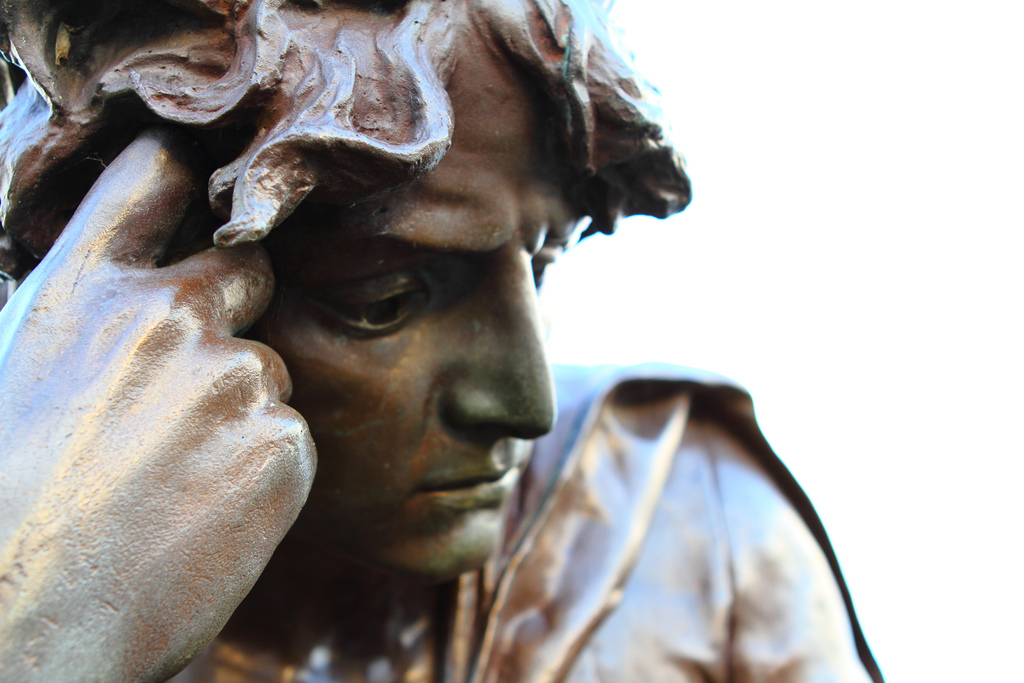What Is the Real Identity of William Shakespeare?
Since the time of the Renaissance, the identity of one of the greatest playwrights of all time, William Shakespeare, have been constantly questioned. There is still an on-going controversy between Shakespeare’s devoted admirers and anti-Stratfordians, who claim that this illustrious person is nothing more but just a fiction due to a number of reasons, such as lack of documentary evidence of Shakespeare being real, discrepancy of the author’s education and writing manner, and numerous similarities found in works of Shakespeare and his contemporaries.
One of the main reasons for planting the seed of doubt concerning Shakespeare’s identity is the fact that very little is known of playwright’s personal life. There are no letters, diaries, or authenticated portraits except the posthumous (Shapiro, 2010). The records of William Shakespeare from Stratford are rather rare and are attributed mostly to Shakespeare as to a real estate owner or an actor. There can be found only 6 William’s signatures of literary works, but the name is spelled differently from the one that appears on most Shakespeare title pages. For a great number of scholars engaged in Shakespeare’s mystery, these facts are the grounds for presupposing that the name was used as a pseudonym for some other author (Barrel).
Another reason to consider Shakespeare to be a myth is an odd inconsistency observed between his education and style of writing. Anti-Stratfordians tend to think, that William’s humble origins and obscure life cannot be compatible with his poetic eminence. The author creates an impression of a highly educated person with a great experience of traveling, knowledge of foreign languages and court life, but at the same time, there is not even an official document proving that William Shakespeare from Stratford attended school and was literate. For many proponents of anti-Stratfordians’ theory, it works as a form of logic known as argumentum ex silentio, or argument from silence, since it takes the absence of evidence to be evidence of absence (Shipley).
A lot of speculation connected with Shakespeare’s identity was also created because of some evident similarities and parallels found in works of Shakespeare and his supposedly more knowledgeable contemporaries, such as Sir Francis Bacon, Christopher Marlowe, William Stanley, Queen Elizabeth I, and Edward de Vere (Shapiro). One of the 19th-century theories suggested that William Shakespeare was a pseudonym of some other well-known playwright of the epoch, created for a specific purpose, usually depending upon the social status of the candidate. A possible reason for this was a prevailing “stigma of print,” or in the case of commoners, avoidance of prosecution by the authorities (Smith).
To sum up, it can be stated that the main reasons for questioning Shakespeare’s identity and authorship are lack of documentary background of his life and a high number of speculations brought up by admirers of other authors of the epoch. However, polemics regarding Shakespeare’s true identity are continuing, not leaving the case closed.
Works Cited
Barrel, Charles Wisner. “Identifying Shakespeare: Science in the Shape of Infra-red Photography and the X rays Brings to Light at Last the Real Man Beneath the Surface of a Series of Paintings of the Bard.” Scientific American, vol. 162, no. 1, 1940, pp. 5–45., www.jstor.org/stable/24988661.
Shapiro, James. Contested Will: Who Wrote Shakespeare? Simon & Schuster, 2010.
Shipley, Joseph Twadell. Anti-Shakespeare theories. Philosophical Library, 1943.
Smith, Emma. “The Shakespeare Authorship Debate Revisited.” Literature Compass, vol. 5, no. 3, 2008, pp. 618–632.
